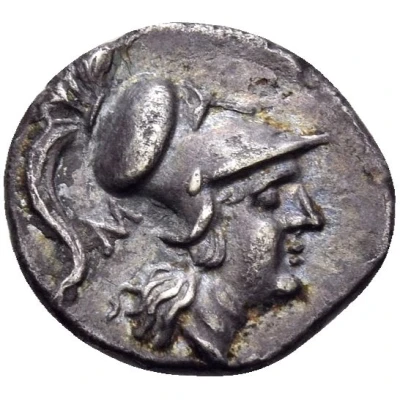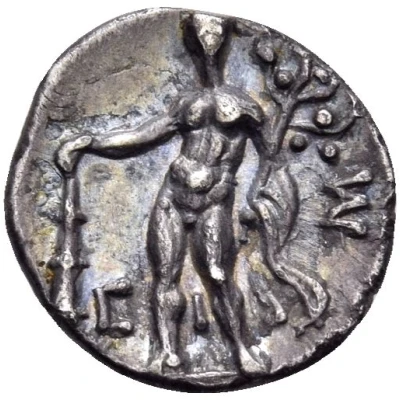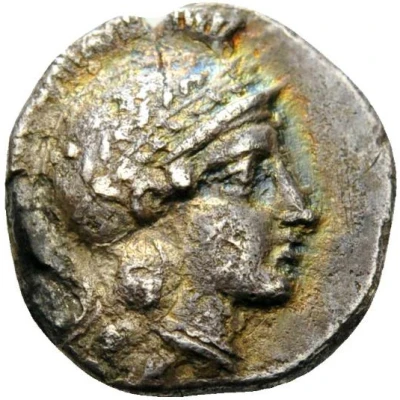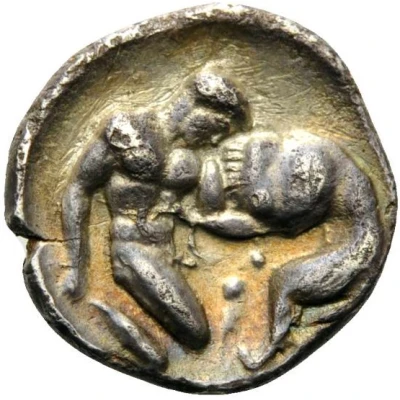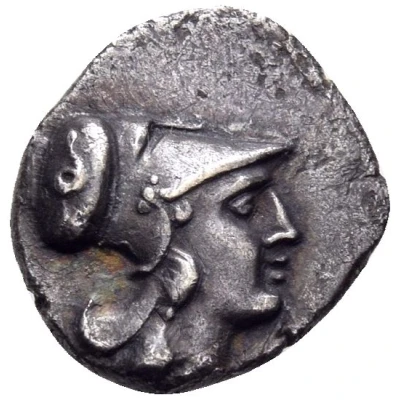
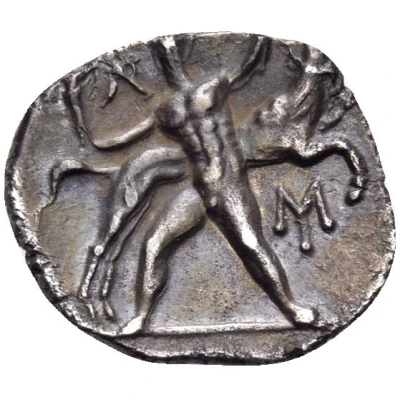

© Nomos AG
Diobol 280 BC - 228 BC
| Silver | 1.01 g | 12 mm |
| Issuer | Tarentum (Calabria) |
|---|---|
| Type | Standard circulation coin |
| Years | 280 BC - 228 BC |
| Value | Diobol (⅓) |
| Currency | Campanian (Italic-Achaean) drachm |
| Composition | Silver |
| Weight | 1.01 g |
| Diameter | 12 mm |
| Shape | Round (irregular) |
| Technique | Hammered |
| Orientation | Variable alignment ↺ |
| Demonetized | Yes |
| Updated | 2024-10-10 |
| Numista | N#417672 |
|---|---|
| Rarity index | 100% |
Reverse
Herakles standing facing, holding club in his right hand and, with his left, seizing the bridle of a horse rearing to right (one of the Horses of Diomedes - the Eighth Labour of Herakles) with his left; above to left, monogram of AP; to right, monogram of MI (or ΜΥ).
Comment
Côte 569; Diobols, Series I, Type 276.
Interesting fact
The Diobol coin was used as a form of currency in the ancient Greek city of Tarentum, which is now located in Calabria, Italy. The coin features an image of a mythical creature called a "Taras," which is a young boy riding a dolphin. This image was a symbol of the city and its connection to the sea. The coin was made of silver and weighed 1.01 grams, making it a valuable and durable form of currency for its time.
